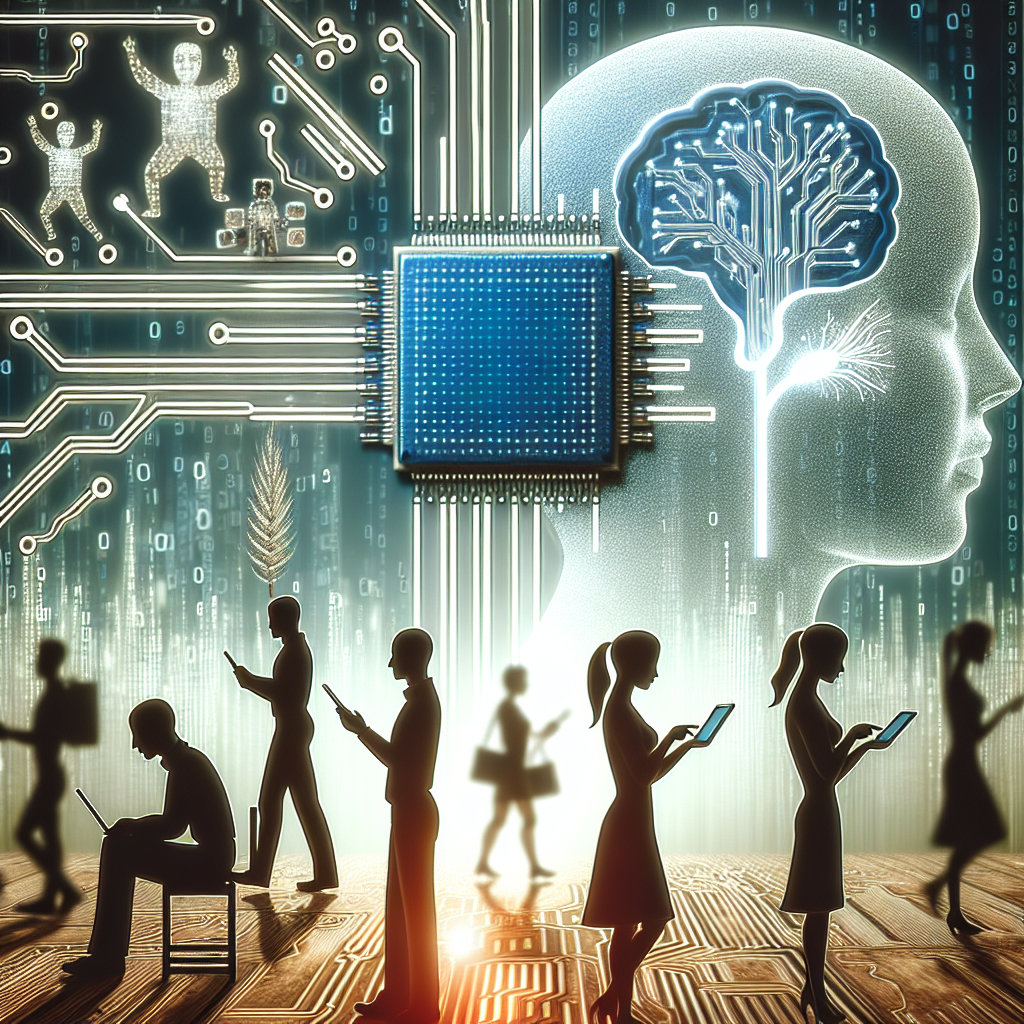Social media has become an integral part of our daily lives, with billions of people around the world using platforms like Facebook, Instagram, Twitter, and TikTok to connect with friends, family, and brands. As social media continues to evolve, the way we engage with these platforms is also changing. One of the biggest shifts in recent years has been the increasing use of artificial intelligence (AI) to enhance social media engagement. But as AI becomes more advanced, many are questioning whether it will eventually replace human interaction on social media altogether.
In this article, we will explore the future of social media engagement, examining the role of AI versus human interaction and how these two elements can work together to create a more engaging and personalized user experience.
The Rise of AI in Social Media Engagement
Artificial intelligence has already made a significant impact on social media engagement, with many platforms using AI-powered algorithms to personalize content, target ads, and improve user experience. AI has the ability to analyze large amounts of data quickly and efficiently, allowing social media platforms to deliver more relevant content to users based on their preferences and behaviors.
One of the key ways AI is being used in social media engagement is through chatbots. Chatbots are AI-powered programs that can interact with users in real-time, answering questions, providing information, and even making recommendations. Chatbots are increasingly being used by brands to provide customer support and engage with followers on social media.
Another way AI is being used in social media engagement is through content curation. AI algorithms can analyze user data to determine what type of content users are most interested in, and then deliver personalized recommendations based on their preferences. This can help increase user engagement and keep users coming back to the platform for more content.
The Benefits of AI in Social Media Engagement
There are several benefits to using AI in social media engagement. One of the key advantages is the ability to scale engagement efforts. AI-powered chatbots can interact with thousands of users simultaneously, providing instant responses and personalized recommendations. This can help brands engage with their audience more effectively and efficiently, without the need for human intervention.
AI can also help improve the overall user experience on social media platforms. By analyzing user data and behavior, AI algorithms can deliver more relevant content to users, increasing engagement and keeping users on the platform longer. This can lead to higher retention rates and increased user satisfaction.
Additionally, AI can help brands better understand their audience. By analyzing user data, AI algorithms can provide valuable insights into user preferences, behaviors, and trends. This information can help brands create more targeted and personalized content, leading to higher engagement and stronger relationships with their audience.
The Role of Human Interaction in Social Media Engagement
While AI has many benefits in social media engagement, human interaction still plays a critical role in building relationships and fostering engagement on social media. Human interaction adds a personal touch to social media engagement, making users feel heard and valued.
Human interaction also allows for more creativity and spontaneity in social media engagement. While AI algorithms can analyze data and deliver personalized recommendations, human interaction can provide a more authentic and emotional connection with users. Human interaction can also provide empathy and understanding, which is essential in customer support and resolving complex issues.
Ultimately, human interaction adds a human element to social media engagement that AI cannot replicate. While AI can enhance engagement efforts, it is important for brands to maintain a balance between AI-driven automation and human interaction to create a more personalized and engaging user experience.
The Future of Social Media Engagement: AI vs. Human Interaction
As social media continues to evolve, the future of social media engagement will likely be a combination of AI and human interaction. AI will play an increasingly important role in personalizing content, targeting ads, and providing customer support on social media platforms. However, human interaction will remain essential in building relationships, fostering engagement, and providing emotional support to users.
In the future, we can expect to see more advanced AI algorithms that can better understand user preferences and behaviors, leading to even more personalized and engaging user experiences. We may also see an increase in the use of virtual influencers and AI-generated content on social media platforms, blurring the line between human and AI interaction.
Ultimately, the key to successful social media engagement in the future will be finding the right balance between AI and human interaction. Brands that can effectively leverage AI to personalize content and engage with users, while also providing a human touch and emotional connection, will be able to create a more engaging and authentic user experience.
FAQs
Q: Will AI replace human interaction on social media?
A: While AI will play an increasingly important role in social media engagement, human interaction will remain essential in building relationships and fostering engagement with users.
Q: How can brands balance AI and human interaction in social media engagement?
A: Brands can balance AI and human interaction by using AI to personalize content, target ads, and provide customer support, while also maintaining a human touch in their interactions with users.
Q: What are the benefits of using AI in social media engagement?
A: AI can help scale engagement efforts, improve the user experience, and provide valuable insights into user preferences and behaviors.
Q: How can brands use AI to enhance social media engagement?
A: Brands can use AI to personalize content, target ads, provide customer support, and analyze user data to create more targeted and personalized content for their audience.

